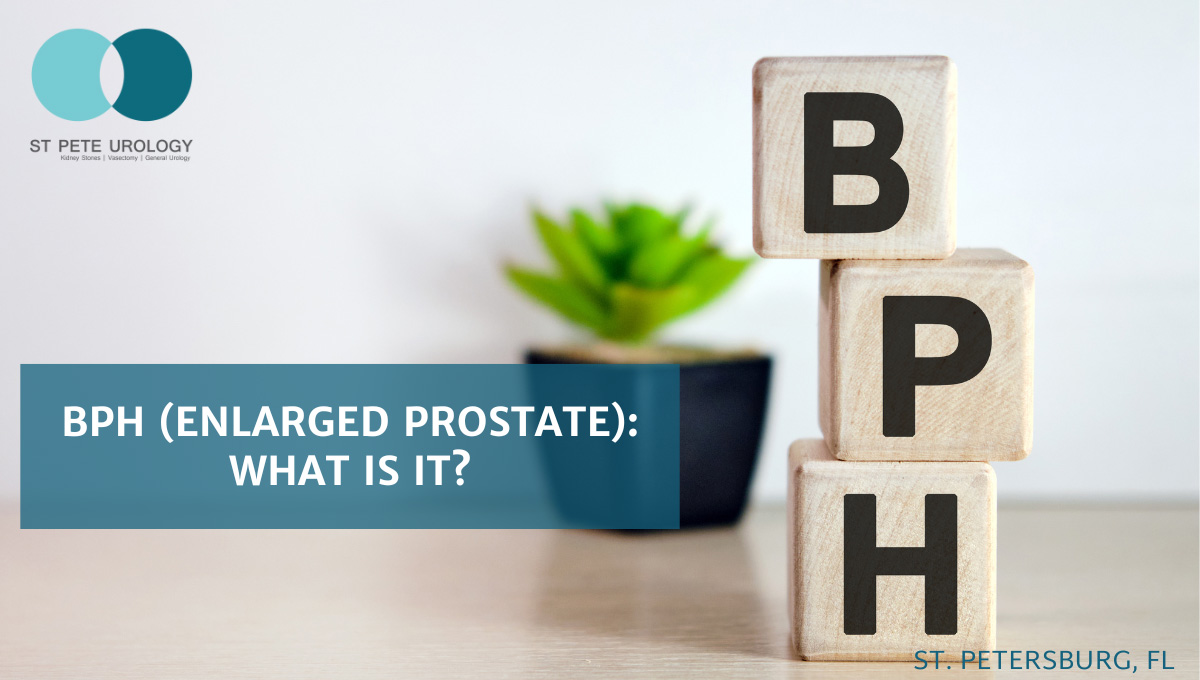What is BPH or Enlarged Prostate? BPH is a condition that will affect the prostate of nearly every man at some point after the age of 40.
Continue readingWhat Are the Different Types of Prostate Problems? – Dr. Adam Oppenheim
7 Tips for Keeping a Healthy Prostate


All men, no matter their age, can find themselves dealing with a prostate issue, which is why every man should be concerned about his prostate health. Fortunately, there are easy ways to prevent or reduce the risk of developing prostate health problems.
Here are 7 tips for keeping your prostate healthy:
1. Eat more fruits and vegetables
Fruits and vegetables are great sources of anti-inflammatory and anticancer compounds, such as polyphenols, antioxidants, minerals, vitamins and fiber. Plants that boost prostate health are plentiful and include favorites such as tomatoes, broccoli, cauliflower, bok choy, cabbage, Brussels sprouts, pink grapefruits, watermelons, papaya and guava. Equally powerful are green leafy vegetables like spinach, lettuce, spring mix and kale which contain cancer-killing ingredients such as folic acid, vitamin D, turmeric and curcumin. Be sure to add fruits and vegetables to your everyday meals to boost your prostate health!
2. Eat more plant proteins and cut down on animal fat
You should avoid diets that are high in animal fat, including dairy products and red meat. Heavy consumption of red meat increases your risk of prostate cancer. So go for lean proteins, such as fish and chicken, but avoid grilled meat since grilling produces carcinogens that can inflame your prostate. Instead try baking, steaming, or broiling your meat.
High animal fat intake reduces antioxidant production in the body. And since it is the antioxidants that help to maintain a healthy prostate, excess fat diminishes prostate health. A good option for a healthy prostate is fish, which contains omega-3 acids that minimize the risk of prostate problems. Fish such as tuna, herring or salmon are good choices, but if fish is not your thing, then walnuts and flaxseed can be great sources of omega-3 acids.
Ideally, you should go for whole, natural foods that provide a lot of fiber. Soy is also good for your prostate and you can get it through sources like soy nuts, soy flour or tofu. Likewise, you should eat foods rich in selenium such as wheat germ, tuna, beef liver, eggs, sunflower, cashews, sesame seeds, mushrooms, onions, garlic and kidneys. Selenium boosts prostate health and minimizes the risk of prostate cancer.
3. Achieve a healthy weight
Obesity has been associated with various prostate health issues, including prostate cancer. If you are overweight, cutting back your weight, particularly abdominal fat, reduces the risk of BPH. In fact, if you desire to shrink your prostate size and get relief from annoying urinary symptoms, weight loss is valuable. Weight loss also helps reduce the risk of prostate cancer and relieves prostatitis.
4. Regular exercise
Moderate or vigorous activity minimizes the risk of BPH, urinary tract symptoms and prostatitis. Regular exercise also decreases stress, releases tension, improves immune function and maintains healthy hormone levels, all of which are important for a healthy prostate.
Aim for at least 30 minutes of moderate or intense physical activity every day. Try walking, swimming, running or bicycling, and make sure your exercise routine is not boring by varying your activities and even inviting friends to join you.
5. Drink tea
Both green tea and hibiscus tea contain potent antioxidants. Studies show that regular intake of tea helps with prostatitis, BPH and prostate cancer. Green tea also slows down the growth of aggressive prostate cancer.
Make sure to choose caffeine free sources of tea since caffeine irritates both the prostate and bladder and worsens symptoms of prostatitis. As a measure to cut down on caffeine intake, make sure to reduce energy drinks, coffee and soda.
Like tea, water is also great for the prostate. Drinking plenty of water will help you remain hydrated and enjoy normal prostate function. Make sure to drink at least 8 glasses of water every day, and to increase water intake during and after exercise.
6. Avoid smoking
Smoking affects every cell in your body. In fact, when cigarettes are burned, they are complete carcinogens. While smoking has less effect on low-grade or benign prostate cancer, it increases the risk of fatal prostate cancer. The heaviest smokers have 24-30 percent higher risk of death from prostate cancer than non-smokers. Smoking also increases the risk of prostate cancer progress after diagnosis.
Studies also show that smoking indirectly promotes benign prostatic hyperplasia (BPH) and increases prostate inflammation. Apart from smoking, alcohol use and inadequate sleep may adversely affect your prostate health. Also, a healthy sex life is good for your prostate.
7. Talk to your doctor
Do you have family history of prostate cancer? Let your doctor know. Remember that having a father or brother who has had prostate cancer more than doubles your risk of developing the disease. Speak with your doctor about your risk of prostate issues and explore the medical screening tests you should undergo as you age, follow dietary recommendations and be alert to any risk factors.
If you intend to begin a new exercise program, make sure to inform your urologist about it. Your doctor should know if you are experiencing symptoms such as:
- Discomfort or pain anywhere in your rectal or pelvic area
- Blood in your urine or semen
- Difficulty or pain when urinating
Are you or your loved one suffering from a prostate problem? St Pete Urology offers specialty urology services in a state-of-the-art facility and surgery center in St. Petersburg, Florida. We provide the latest innovations in surgical techniques and medical technology, delivering comprehensive care to those with urologic conditions. For more information about the prostate gland, BPH and prostate cancer, visit the St Pete Urology website.



